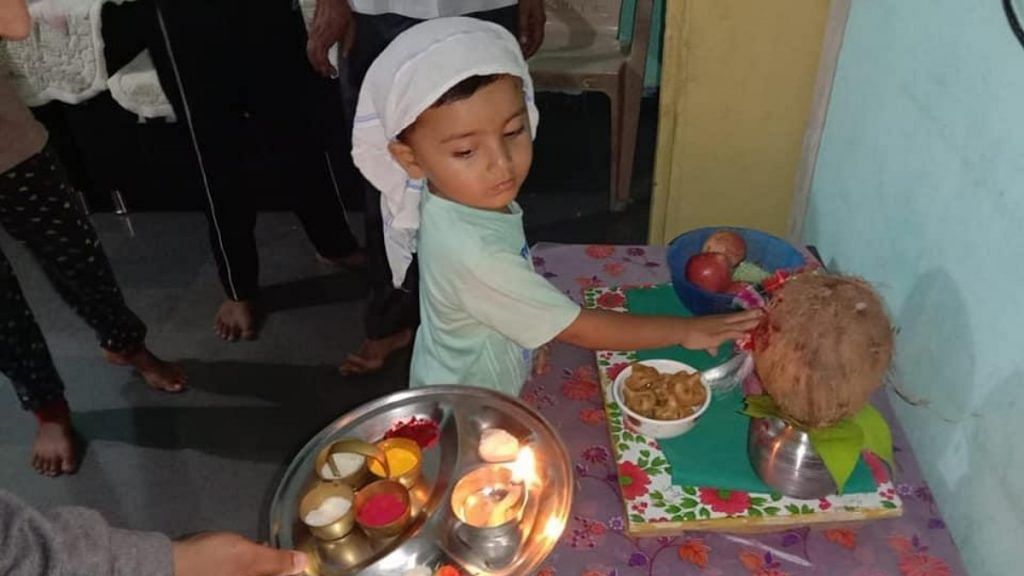Mumbai: On the day of Ganesh chaturthi, last Saturday, 32-year-old Aslam Jamadar, a deputy tahsildar in Kalamb in Maharashtra’s Osmanabad district, got a call from his wife, Arshiya, while he was on Covid-related duties in his town.
Their three-year-old son, Abrar, was stubbornly insisting on getting a Ganpati idol at home. Being a Muslim, Aslam couldn’t immediately reconcile with the idea of getting a Hindu god home and said something non-committal to buy time.
An hour later, 28-year-old Arshiya sent him a photo on WhatsApp that showed a small Ganpati idol sitting in a decorated corner of their house. Abrar, who had been to a neighbour’s house for Ganpati festival last year, had managed to convince his mother to get him an idol of Bappa.
“I showed the photo to some of my colleagues and all of us laughed at Abrar’s innocence, but at the same time I had this thought that we are going against tradition and bringing a Hindu God into a Muslim family. Here, it is fine as me and my wife stay alone with our son, but I was concerned about what my parents and in-laws will say when they find out,” Aslam, who originally hails from Kolhapur, told ThePrint.
But, when he reached home that evening, all his trepidations vanished. “My son was so happy, he was literally dancing with joy. I had never seen him this happy, and that really drove away all my concerns,” Aslam said.
Also read: How Maharashtra leaders ‘use’ Ganesh Chaturthi to mix politics and devotion
Modak recipes from YouTube and aartis in headscarves
When the elders of the family heard about Aslam and Arshiya celebrating the Ganpati festival at home, they said it would be better to perform the immersion soon.
“Our parents were concerned that we will not be able to do everything properly for a Hindu god. It is not our tradition and we may not be able to do everything as respectfully as required, so they suggested we perform the visarjan,” Aslam said. “But, I thought ultimately it is all about love and faith, so why not celebrate the Ganesh festival at home for all ten days.”
Arshiya, an ayurvedic doctor by profession, made modaks (sweet dumplings) at home as an offering for the Ganpati after learning the recipe from YouTube.
The Jamadars even relied on YouTube for the aarti, with Abrar enthusiastically in the lead. “We don’t go before god without covering our head, so we perform aartis with a handkerchief as a headscarf,” Aslam said.
“My son was so happy he kept saying he wants to take Bappa to bed with him,” he added.
‘Start of a new tradition’
For the Jamadars, this is the beginning of a new tradition as they are planning to get a Ganpati idol in their house next year too. Many of their Muslim friends in the town are also inspired, the Jamadars said.
“It is not just the beginning of a new tradition, but also the start of a change in our thought process too. We say we should accept diversity, but mostly it is lip service. But, if you think about it, it is not difficult at all. It just needs some courage to take the first step and go against established traditions,” Aslam said.
As Aslam and Arshiya offer prayers to the Ganesh idol at home every day, there’s one thing that they always ask from Abrar’s Ganpati Bappa — something that Aslam has even put down in a Facebook post.
“May the innocence that made Abrar accept you forever be there in his life, and may everything in life be always this simple,” he said.
Also read: On Ganesh Chaturthi, less than 500 people line up for Mumbai’s Lalbaugcha Raja health camp
